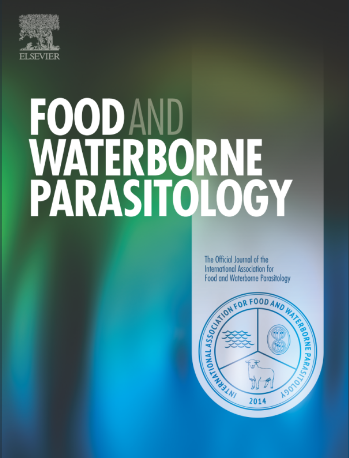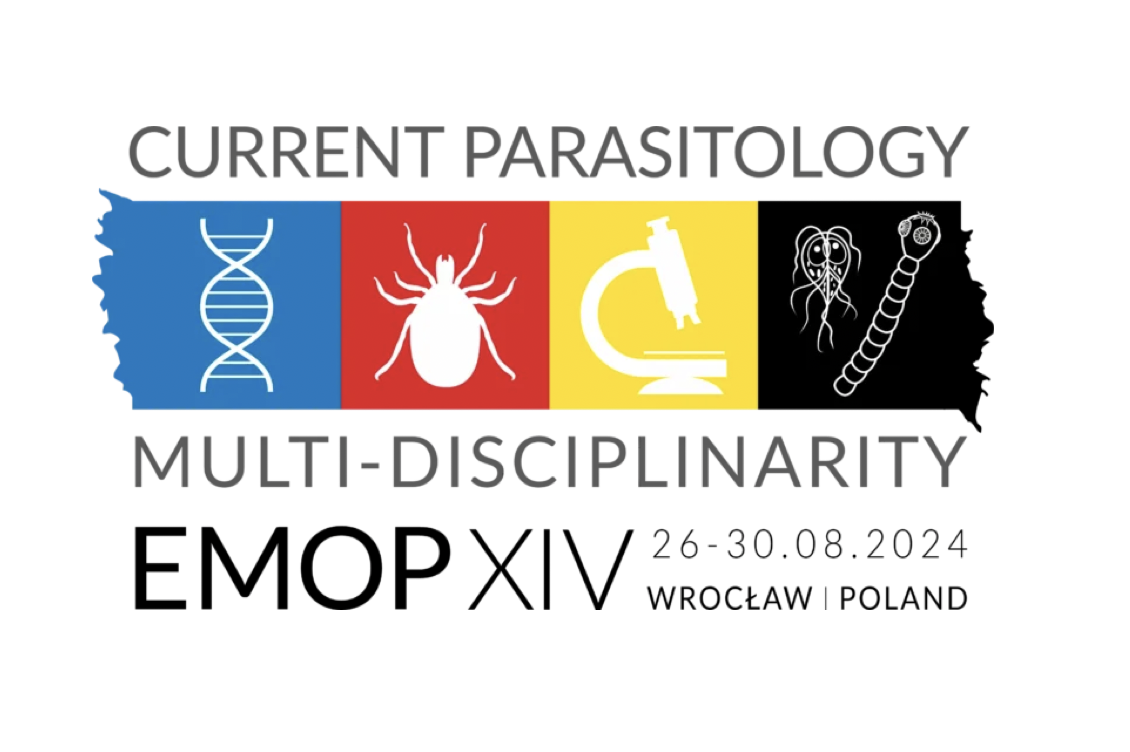✓ Protozoa: Acanthamoeba, Balantioides (Balantidium), Blastocystis, Cryptosporidium, Cyclospora, Cystoisospora, Giardia, Entamoeba, Sarcocystis, Toxoplasma, Naegleria, Trypanosoma cruzi
✓ Nematodes: Angiostrongylus, Anisakidae, Ascaris, Baylisacaris, Capillaria, Dracunculus, Toxocara, Trichinella, Trichuris
✓ Cestodes: Diphyllobothrium, Echinococcus, Hymenolepis, Spirometra, Taenia
✓ Trematodes: Clonorchis, Fasciola, Fasciolopsis, Echinostomatidae, Heterophyes , Metagonimus, Metorchis, Opisthorchis, Paragonimus, Schistosoma, Schistosomatidae (cause of swimmers’ itch/cercarial dermatitis)
✓ Microsporidia: Encephalitozoon, Enterocytozoon


TYPES OF RELEVANT STUDIES
- Surveys, ecology, epidemiology, risk assessments, mitigation and control, test methodologies, basic biology, morphology, cellular and molecular biology, biochemistry, immunology, host-parasite relationships, and chemotherapies;
- Pertinent food includes products of animal or plant origin that are wild or domesticated, and consumed by people.
- Animals and plants from both terrestrial and aquatic sources are included, as well as studies related to potable and other types of water used by humans, which serve to harbor, propagate, or disseminate the relevant parasites.
- Evidence of the emergence of relevant parasites and interactions among domestic animals, wildlife, people, and the environment (One Health focus) are of interest. The impact of such parasites on the health and welfare of humans is viewed as very important and within scope of the journal. Manuscripts on associations between food and waterborne parasitic diseases and lifestyle, culture and economies are also welcome.
ARTICLE TYPES
- The primary form of publication in the journal is a full-length paper describing scientifically-sound original research studies;
- Brief Communications of original research findings;
- Special Issues on interesting topics, or emerging themes may be solicited by the journal, or proposed by authors;
- Topical review articles or reports based on keynote presentations at conferences or workshops will be considered.

FAWPAR Special Issue to follow EMOP2024
FAWPAR will publish a Special Issue dedicated to relevant presentations at EMOP2024. The SI will include a series of invited, as well as open contributed papers.
Anyone presenting at EMOP2024 within the scope of FAWPAR will be eligible to submit a manuscript for publication in the SI.
A limited number of waivers will be available to cover the open access publication fee, and will be awarded to invited speakers, and on a competitive basis to students and others who apply.

Anyone presenting within the scope of FAWPAR at EMOP-2024 will be eligible to submit a manuscript for publication in the SI. The journal’s Guide for Authors and peer review process will apply to all submissions.
Guest editors:
Alvin Gajadhar – University of Saskatchewan, Saskatchewan, Canada
Olgica Djurkovic-Djakovic – University of Belgrade, Belgrade, Serbia
Lucy Robertson – Norwegian University of Life Sciences, As, Norway
Ray Gamble – National Academies of Sciences Engineering and Medicine, Washington, USA
Manuscript submission information
Manuscript Submission Deadline: 31st March 2025
The journal’s submission platform: Editorial Manager® is now available for receiving submissions to this Special Issue. Please refer to the Guide for Authors to prepare your manuscript, and select the article type of “VSI:EMOP 2024” when submitting your manuscript online. Both the Guide for Authors and the submission portal could be found on the Journal Homepage.
Keywords: foodborne; waterborne; genomics; epidemiology; ecology; interventions; multidisciplinarity

FAWPAR Awards at EMOP 2024
FAWPAR proudly announces the winners of the EMOP 2024 FAWPAR awards:
Cecilia Wangari Wambul, Catholic University Leuven, Leuven, Belgium, for the presentation of her work: Point-of-care molecular diagnostics for schistosomiasis surveillance using environmental DNA
Karolina Kot, Pomeranian Medical University in Szczecin, Szczecin, Poland, for the presentation of her work: Immunological aspects of host-parasite interactions (immunopathology and allergy)
FAWPAR congratulates the winners and wishes them the best of luck in their research careers.

